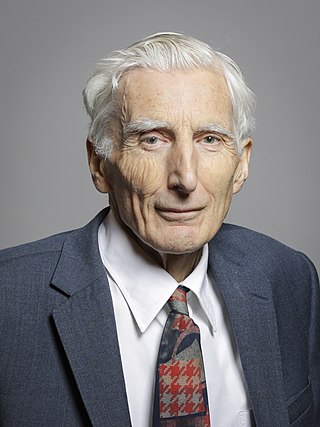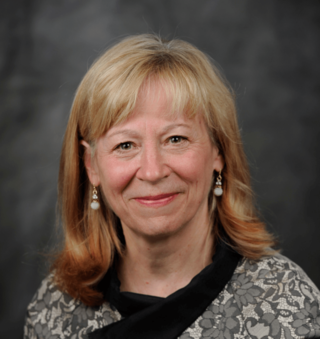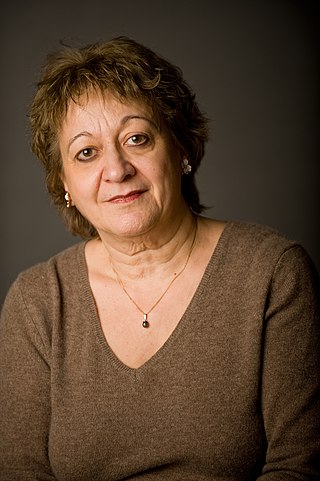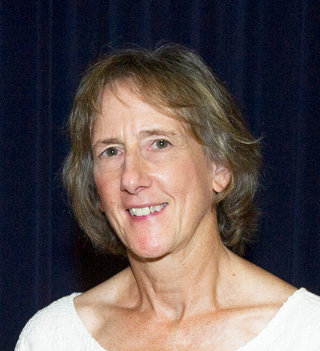
Martin John Rees, Baron Rees of Ludlow, is a British cosmologist and astrophysicist. He is the fifteenth Astronomer Royal, appointed in 1995, and was Master of Trinity College, Cambridge, from 2004 to 2012 and President of the Royal Society between 2005 and 2010. He has received various physics awards including the Wolf Prize in Physics in 2024 for fundamental contributions to high-energy astrophysics, galaxies and structure formation, and cosmology.

John Norris Bahcall was an American astrophysicist and the Richard Black Professor for Astrophysics at the Institute for Advanced Study. He was known for a wide range of contributions to solar, galactic and extragalactic astrophysics, including the solar neutrino problem, the development of the Hubble Space Telescope and for his leadership and development of the Institute for Advanced Study in Princeton.

Lisa Feldman Barrett is a Canadian-American psychologist. She is a University Distinguished Professor of psychology at Northeastern University, where she focuses on affective science and co-directs the Interdisciplinary Affective Science Laboratory. She has received both of the highest scientific honors in the field of psychology, the William James Fellow Award from the Association for Psychological Science for 2025, and the Award for Distinguished Scientific Contributions from the American Psychological Association for 2021. Along with James Russell, she is the founding editor-in-chief of the journal Emotion Review. Along with James Gross, she founded the Society for Affective Science.
Irwin Ira Shapiro is an American astrophysicist and Timken University Professor at Harvard University. He has been a professor at Harvard since 1982. He was the director of the Center for Astrophysics | Harvard & Smithsonian from 1982 to 2004.
Alastair G. W. Cameron was an American–Canadian astrophysicist and space scientist who was an eminent staff member of the Astronomy department of Harvard University. He was one of the founders of the field of nuclear astrophysics, advanced the theory that the Moon was created by the giant impact of a Mars-sized object with the early Earth, and was an early adopter of computer technology in astrophysics.

Geraldine Lee Richmond is an American chemist and physical chemist who is serving as the Under Secretary of Energy for Science in the US Department of Energy. Richmond was unanimously confirmed by the United States Senate to her role on November 5, 2021. In this position, she oversees the Office of Science, the Applied Energy offices, and 13 of the 17 Department of Energy national laboratories. Before this appointment, Richmond served as a Professor of Physical Chemistry and held the Presidential Chair in Science at the University of Oregon. Her research has focused on understanding the chemistry and physics of complex surfaces and interfaces, using laser-based experimental and theoretical computational methods. These understandings are most relevant to energy production, atmospheric chemistry and remediation of the environment. Throughout her career she has also worked to increase the number and success of women scientists in the U.S. and in many developing countries through the COACh program that she founded in 1999. She is a member of the National Academy of Sciences and the American Academy of Arts and Sciences. In recognition of her scientific achievements and contributions to women in science, she received the National Medal of Science from President Obama in 2013.

Chryssa Kouveliotou is a Greek astrophysicist. She is a professor at George Washington University and a retired senior technologist in high-energy astrophysics at NASA's Marshall Space Flight Center in Huntsville, Alabama.

Vassiliki Kalogera is a Greek astrophysicist. She is a professor at Northwestern University and the director of the Center for Interdisciplinary Exploration and Research in Astrophysics (CIERA). She is a leading member of the LIGO Collaboration that observed gravitational waves in 2015.

Alice Kust Harding is an American astrophysicist at the NASA Goddard Space Flight Center, Greenbelt, Maryland.
William George Harter is an American physicist at the University of Arkansas.
Thomas James Bernatowicz, from Washington University in St. Louis, was awarded the status of Fellow in the American Physical Society, having been nominated by their Division of Astrophysics in 1999.
Stephen P. Reynolds from North Carolina State University, was awarded the status of Fellow in the American Physical Society, after he was nominated by his Division of Astrophysics in 2000, for contributions to high-energy astrophysics, including modeling relativistic jets in quasars, pulsar-driven supernova remnants, and electron acceleration to synchrotron X-ray emitting energies in young shell supernova remnants, and supporting observations.
Guang-Yu Guo from the National Taiwan University, was awarded the status of Fellow in the American Physical Society, after they were nominated by their Division of Computational Physics in 2005, for his contributions to our understanding of relativity-induced phenomena in magnetic solids and physical properties of materials including transition metal oxides and carbon nanotube structures, through first-principles electronic structure calculations.
William Arthur Coles, from the University of California, San Diego, was awarded the status of Fellow in the American Physical Society, after they were nominated by their Topical Group in Plasma Astrophysics in 2006, for his major contributions to our understanding of the effect of plasma turbulence on radio wave propagation, and the use of radio propagation measurements to infer properties of remote turbulent plasmas in interplanetary space and the interstellar medium.
James Vincent Porto III is a physicist at the National Institute of Standards and Technology. He was the recipient of a Presidential Early Career Award for Scientists and Engineers in 2005. He was awarded the status of Fellow in the American Physical Society, after being nominated by their Division of Atomic, Molecular & Optical Physics in 2008, for "seminal studies of ultra-cold atoms in optical lattices with applications to quantum information, many-body physics, and condensed matter models, and for the invention of optical lattice techniques including a super-lattice for patterned loading, and a re-configurable lattice of double wells."
Xincheng Xie is a Chinese condensed matter physicist and academic administrator. He is a professor at Peking University and the president of the University of Nottingham Ningbo China. He is an academician of the Chinese Academy of Sciences (CAS) and The World Academy of Sciences (TWAS).
Farhat Nadeem Beg from the University of California, San Diego, was awarded the status of Fellow in the American Physical Society, after he was nominated by his Division of Plasma Physics in 2009, for contributions to the understanding of physics of short pulse high intensity laser matter interactions and pulsed power driven dense Z-pinches. His empirical scaling of hot electron temperature versus laser intensity has contributed significantly to the understanding of relativistic electron generation and transport in matter. He was the recipient of the Department of Energy Early Career Award in 2005 as well as the IEEE Early Achievement Award in 2008. He also has been a fellow of the IEEE since 2011. He currently is the director of the Center for Energy Research at UCSD with a focus on Inertial Confinement Fusion.'
James T. Linnemann is an American physicist.

Burçin Mutlu-Pakdil is a Turkish-American astrophysicist, and Assistant Professor at Dartmouth College. She formerly served as a National Science Foundation (NSF) and Kavli Institute for Cosmological Physics (KICP) Postdoctoral Fellow at the University of Chicago. Her research led to a discovery of an extremely rare galaxy with a unique double-ringed elliptical structure, which is now commonly referred to as Burcin's Galaxy. She was also a 2018 TED Fellow, and a 2020 TED Senior Fellow.
Kate Page Kirby is an American physicist. From February 2015 to December 2020, Kirby was the chief executive officer of the American Physical Society (APS) and sits on the board of directors of the American Institute of Physics. Kate Kirby was elected a fellow of the American Physical Society (APS) in 1989 for her "innovative application of methods of quantum chemistry to the quantitative elucidation of a diverse range of molecular phenomena." She was made a fellow of the American Association for the Advancement of Science (AAAS) in 1996 for her contributions to physics.








